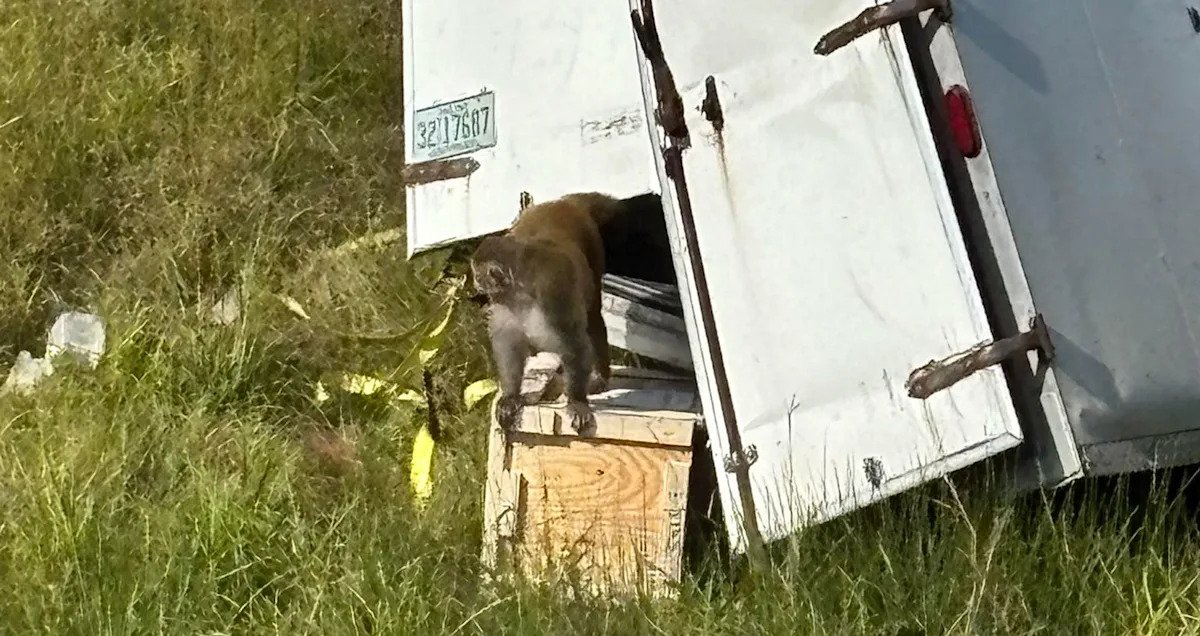Breaking News
Lab monkeys remain on the loose in Mississippi following truck crash, as authorities correct initial reports they were carrying infections

Authorities were still searching on Wednesday for three rhesus monkeys after they escaped following a truck accident in Mississippi this week.
The truck, which carried rhesus monkeys used in scientific research, crashed Tuesday on I-59 near mile marker 117, about 100 miles from Jackson, Miss., the Jasper County Sheriff’s Department stated in a Facebook post. As of Tuesday, officials said that three monkeys remained on the loose after initially reporting just one was unaccounted for. The other monkeys have been “destroyed.”
“We are doing our best to update the public, but we are still in the midst of gathering all pertinent information,” the department said. “We will continue to release updates as we get more information.”
According to local CBS affiliate WHLT, the truck had been carrying 21 monkeys bound for a Florida testing facility when it crashed.
Initially, the sheriff’s department said that the monkeys weighed approximately 40 pounds each, were aggressive and required protective gear to handle as they carried “hepatitis C, herpes, and COVID.” However, a follow-up post from the sheriff’s department on Tuesday shared a statement from the Tulane Biomedical Research Center, which clarified earlier claims that the sheriff’s department said were initially made by the truck driver.
“Non-human primates at the Tulane National Biomedical Research Center are provided to other research organizations to advance scientific discovery,” the organization said. “The primates in question belong to another entity and are not infectious. We are actively collaborating with local authorities and will send a team of animal care experts to assist as needed.”
Tulane National Biomedical Research Center told Yahoo in a statement that the 21 rhesus macaques “were not being transported by Tulane, not owned by Tulane, and not in Tulane’s custody,” and that they had “received recent checkups confirming that they were pathogen-free.”
“Although Tulane did not transport or own the nonhuman primates at the time of the incident, we sent a team of animal care experts to assist in this tragic incident,” the center said.
Rhesus monkeys, or rhesus macaques, a species native to India and China, are commonly used in biomedical research because they share about 93% of their DNA with humans. Adult males typically weigh around 17 pounds and females about 12.
